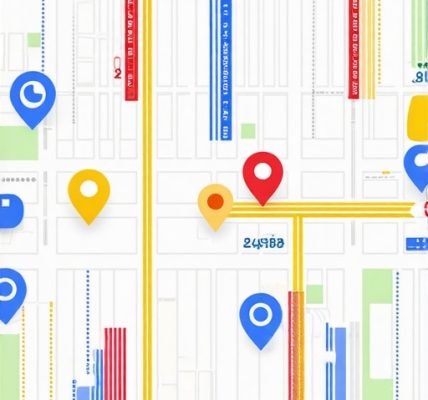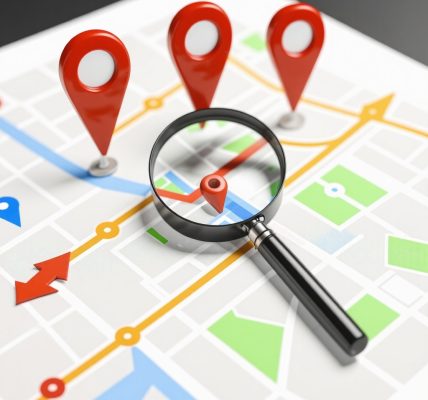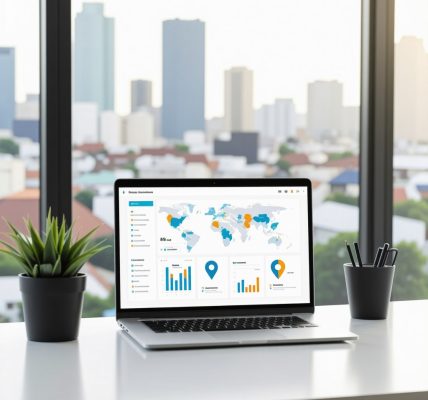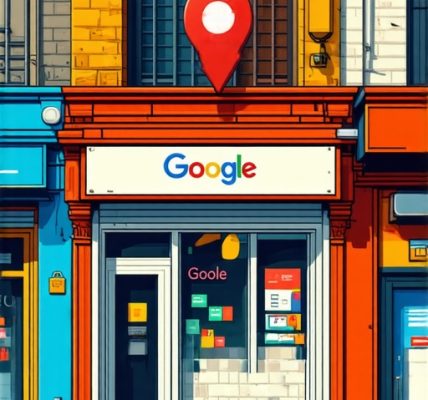Unlocking the Future of Hyperlocal SEO: Strategic Insights for 2025
In the rapidly evolving landscape of local search, hyperlocal SEO has transitioned from a supplementary tactic to a core component of digital marketing strategies for small and medium-sized businesses. As we approach 2025, understanding the intricate layers of hyperlocal optimization is crucial for establishing dominance in local search rankings. This comprehensive guide synthesizes expert insights, latest industry trends, and advanced techniques to empower businesses in capturing their local audiences effectively.
The Significance of Hyperlocal SEO in the Context of Evolving Search Algorithms
Search engines increasingly prioritize contextually relevant, proximity-based results, making hyperlocal SEO essential. Google’s algorithm updates, such as BERT and MUM, refine the understanding of user intent, emphasizing local relevance. According to Moz’s recent white paper on local search, integrating hyperlocal signals can significantly increase visibility in the coveted Google 3-Pack and local pack results, especially in competitive markets.
Leveraging Geospatial Data for Precise Audience Targeting
Advanced hyperlocal SEO leverages accurate geospatial data, including GPS coordinates, IP-based location signals, and user device data to refine targeting. For instance, hyperlocal campaigns that utilize hyper-targeted keywords combined with geofencing can dramatically enhance conversion rates. These strategies demand a sophisticated understanding of local user behavior patterns and real-time data analytics to fine-tune marketing efforts.
Optimizing Google My Business (GMB) for 2025 Dominance
The foundation of hyperlocal SEO remains Google My Business optimization. Ensuring your GMB profile is complete with accurate NAP (Name, Address, Phone number), category relevance, and high-quality visuals is paramount. Recent updates suggest that GMB posts, Q&A management, and review responses directly influence local rankings. Experts recommend continuous GMB audits via tools like GMB SEO audits for sustained visibility.
Integrating Hyperlocal Content and Backlink Strategies
Content tailored to hyperlocal audiences—such as neighborhood guides, local event coverage, and community involvement stories—builds authority and relevance. Coupled with hyperlocal backlinking from community portals, local news sites, and industry directories, these efforts reinforce local signal strength. For example, acquiring citations from authoritative local sources can elevate local search rankings substantially.
Expert-Level Question: How Can Small Businesses Strategically Use Customer Reviews to Outrank Competitors in Hyperlocal Search?
Customer reviews serve as social proof and are a pivotal ranking factor. Businesses should focus on generating authentic, keyword-rich reviews that address specific service aspects. Responding promptly and professionally to reviews, especially negative ones, enhances engagement signals. Additionally, leveraging review platforms for rich snippets can improve click-through rates from local search results. A well-curated review management strategy, aligned with local SEO tactics, can be the differentiator in hypercompetitive markets.
Harnessing Local SEO Tools and Data Analytics for 2025 Success
Advanced local SEO requires the integration of modern tools like Moz Local, BrightLocal, and SEMrush to monitor citations, track rankings, and analyze competitor performance. These tools facilitate data-driven decisions, enabling marketers to adapt swiftly to algorithm changes and local market dynamics. Regular audits and performance reviews ensure hyperlocal strategies remain effective and aligned with evolving search engine expectations.
For further insights on optimizing your local search presence, explore comprehensive local SEO strategies or consider consulting with local SEO experts to tailor a hyperlocal approach that guarantees dominance in 2025.
Unveiling the Next-Level of Hyperlocal SEO: Are Businesses Ready for 2025?
As we delve deeper into the hyperlocal landscape, emerging technologies like AI-driven local search algorithms and augmented reality (AR) applications are poised to revolutionize how consumers discover and interact with nearby businesses. Forward-thinking brands must anticipate these shifts by integrating cutting-edge tools and innovative content strategies that resonate with hyperlocal audiences.
Harnessing AI and Machine Learning for Hyperlocal Precision
Artificial intelligence (AI) and machine learning (ML) are transforming local search by enabling hyper-targeted advertising, predictive analytics, and personalized user experiences. For instance, AI-powered chatbots can engage potential customers in real-time, answering queries with location-specific data, thereby increasing conversion rates. Moreover, ML algorithms can analyze vast amounts of geospatial data to identify emerging local trends, allowing businesses to optimize their marketing efforts proactively.
Integrating Augmented Reality (AR) for Immersive Local Experiences
AR applications offer immersive ways for consumers to explore local offerings virtually. Imagine a potential customer walking past your storefront and viewing a virtual tour or special offers via their smartphone. Implementing AR features within your local SEO strategy can significantly boost engagement and foot traffic, especially among younger demographics. As AR becomes more accessible, early adoption could provide a vital competitive edge.
Challenging Assumptions: Is Traditional Local SEO Enough for 2025?
Many business owners still rely heavily on basic local SEO tactics—like keyword optimization and citation management—assuming these are sufficient. However, with the rapid evolution of search technology, such approaches are no longer enough. Advanced strategies, such as leveraging Google Maps SEO and local intent signals, are essential to stand out in a crowded marketplace. The key lies in integrating these with innovative tools like voice search optimization and personalized content delivery.
How Can Small Businesses Leverage Data-Driven Insights to Outperform Competitors in Hyperlocal Search?
Utilizing analytics platforms such as SEMrush or BrightLocal enables businesses to monitor local ranking fluctuations, review sentiment trends, and identify high-converting keywords. Regularly conducting GMB audits can reveal new optimization opportunities, while competitor analysis provides strategic gaps. Combining these insights with hyperlocal content—like neighborhood stories or community event coverage—can significantly enhance local relevance and authority.
If you’re eager to implement these innovative strategies, consider exploring our comprehensive local SEO guide for actionable insights and expert advice.
Harnessing Hyperlocal Search Data to Craft Ultra-Targeted Campaigns
In the quest for hyperlocal dominance, leveraging granular geospatial data becomes indispensable. Modern tools like Foursquare Places API or SafeGraph provide detailed location insights, enabling marketers to identify emerging neighborhood trends and consumer hotspots with remarkable precision. By integrating these datasets into your SEO and advertising strategies, you can craft highly personalized campaigns that resonate deeply with local audiences, thereby boosting engagement and conversion rates.
Building a Robust Hyperlocal Content Ecosystem for Long-Term Authority
Developing hyperlocal content that consistently reflects community interests and local culture is critical. This involves not only creating neighborhood guides and event coverage but also fostering user-generated content, such as local reviews, photos, and testimonials. Utilizing schema markup for local business data enhances search engine understanding, increasing the likelihood of rich snippets. Additionally, collaborating with local influencers and community leaders amplifies your brand’s authority and trustworthiness within the neighborhood ecosystem.
What Advanced Tactics Can Small Businesses Use to Outmaneuver Competitors in Hyperlocal Search?
Beyond standard SEO practices, small businesses should adopt advanced tactics such as geo-fencing retargeting campaigns, dynamic local ad creatives, and AI-driven sentiment analysis. Geo-fencing allows precise targeting of users within specific proximities, while real-time ad adjustments based on local events or weather conditions can improve relevance. Sentiment analysis of reviews and social media mentions helps refine messaging and identify areas for improvement, ensuring your brand maintains a competitive edge. Incorporating these sophisticated techniques requires an investment in analytics platforms and strategic planning but can lead to disproportionate gains in local search visibility.
The Role of Voice Search Optimization in Hyperlocal SEO’s Future Landscape
With the proliferation of voice-activated devices, optimizing for local voice search is becoming increasingly vital. Natural language queries, such as “Find the best coffee shop near me,” demand that businesses refine their local SEO to include conversational keywords and question-based content. Structuring your Google My Business profile with comprehensive, keyword-rich descriptions and ensuring your website is optimized for mobile and voice queries are essential steps. According to a 2024 study by BrightLocal, over 58% of consumers now use voice search for local information, underscoring its importance in the hyperlocal SEO mix.
Integrating Augmented Reality (AR) for Immersive Local Branding Experiences
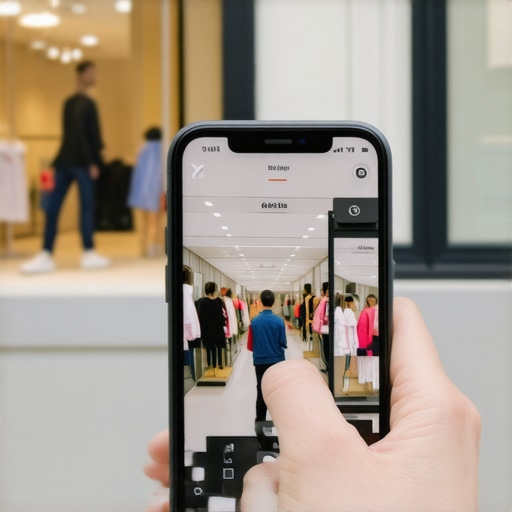
AR technology offers innovative avenues for engaging local audiences. For example, a local retailer can develop an AR app that allows passersby to view virtual product displays or interactive store maps. This not only enhances the customer experience but also drives foot traffic and social sharing. As AR becomes more accessible through smartphones and dedicated devices, early adoption can set a brand apart in crowded markets. Strategic integration of AR with hyperlocal SEO efforts can create memorable, immersive brand experiences that foster loyalty and local advocacy.
Harnessing Predictive Analytics to Foresee Local Market Trends
Advanced hyperlocal SEO requires a proactive approach, integrating predictive analytics to anticipate neighborhood shifts, consumer preferences, and emerging hotspots. Tools like Tableau and Power BI, combined with geospatial data from sources such as SafeGraph, enable marketers to identify future high-value locations before competitors do. By analyzing historical data patterns, businesses can craft anticipatory campaigns that position them as local authorities well ahead of market changes.
How Can Hyperlocal SEO Benefit from Blockchain for Enhanced Trust?
Blockchain technology offers promising avenues to bolster trust and transparency in local reviews, citations, and customer transactions. Implementing blockchain-based review verification systems can authenticate customer feedback, reducing fake reviews and increasing credibility. Moreover, blockchain can secure local citation data, ensuring consistency and preventing malicious alterations, ultimately influencing search engine rankings positively.
External Resource for Deep Dive: What Does the Latest Research Say About AI in Hyperlocal Search?
According to a 2024 study published in the Journal of Digital Marketing, AI-driven personalization enhances local search engagement by 35%, emphasizing the importance of machine learning algorithms in hyperlocal content curation and ad targeting. These insights underscore the necessity for businesses to adopt AI tools to refine their hyperlocal strategies effectively. Explore the full research paper at Sage Journals for comprehensive findings.
Call to Action: Are You Ready to Elevate Your Local SEO Game?
As the hyperlocal landscape becomes increasingly sophisticated, staying ahead demands mastery of cutting-edge tools and strategies. Engage with industry experts, leverage advanced analytics, and experiment with emerging technologies like AR and blockchain to carve out a competitive edge. Don’t wait—start integrating these innovative tactics today to ensure your business’s prominence in 2025’s local search ecosystem.
Expert Insights & Advanced Considerations
1. Embrace Hyperlocal Data Integration
Leveraging geospatial and real-time data analytics enables precise audience targeting, fostering higher engagement and conversions in hyperlocal markets.
2. Prioritize Voice and AR Technologies
Optimizing for voice search and integrating augmented reality experiences can significantly enhance local visibility and consumer interaction, positioning your business as an innovative leader.
3. Focus on Authentic Customer Engagement
Building a review ecosystem with authentic, keyword-rich feedback and proactive reputation management boosts trust and search rankings in competitive local landscapes.
4. Utilize Predictive and Blockchain Analytics
Applying predictive analytics anticipates neighborhood trends, while blockchain enhances trust through review verification and citation security, respectively—both crucial for future-proof hyperlocal SEO.
5. Invest in Continuous Local SEO Education
Staying informed through authoritative resources and industry reports ensures your strategies evolve with emerging technologies and search engine updates, maintaining a competitive edge.
Curated Expert Resources
- Google Maps SEO Tips: Deepen your understanding of local map optimization techniques at Unlocking Google Maps SEO Tips.
- GMB Optimization Best Practices: Stay ahead with comprehensive strategies at Fastest Ways to Rank Your Google Business Profile.
- Local SEO Analytics: Harness advanced data insights with tools and guides at GMB SEO Audit.
- Emerging Tech in Local Search: Explore the future with AI and AR strategies detailed at Understanding Local SEO for Small Businesses.
Final Expert Perspective
In the rapidly advancing realm of hyperlocal SEO, integrating cutting-edge technologies such as AI, AR, and blockchain with data-driven strategies is paramount for 2025 success. Staying informed through authoritative resources and continuously refining your approach ensures your business remains at the forefront of local search dominance. Engage with these insights, explore recommended resources, and consider collaborating with local SEO experts to craft a hyperlocal strategy that not only competes but leads in your market. The future favors those who innovate and adapt—are you ready to take the leap?

